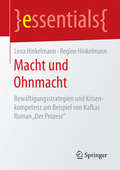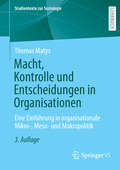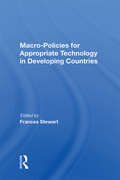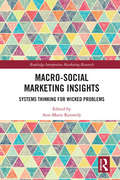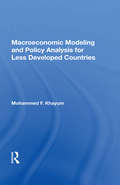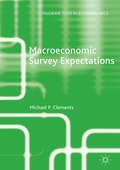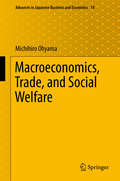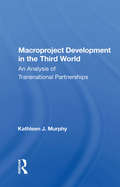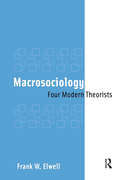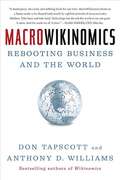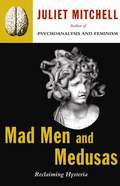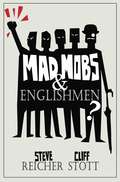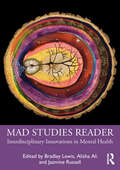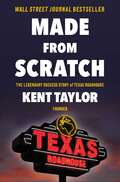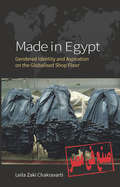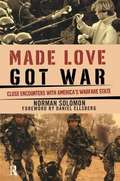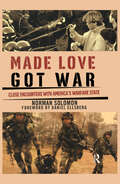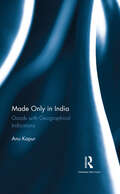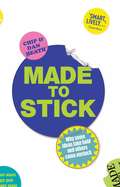- Table View
- List View
Macht und Herrschaft: Zur Revision zweier soziologischer Grundbegriffe
by Peter Gostmann Peter-Ulrich Merz-BenzDas Buch befasst sich mit Kernbegriffen der Sozialwissenschaften: Macht und Herrschaft. Mit Beiträgen von Gerhard Wagner, Guy Oakes, Hubert Treiber, Peter Gostmann, Peter-Ulrich Merz-Benz, Dirk Tänzler und Stephen Turner.
Macht und Magie: Tiefenhermeneutische Rekonstruktion nationalsozialistischer, neokonservativer und rechtspopulistischer Inszenierungen in Deutschland (Kritische Sozialpsychologie)
by Hans-Dieter KönigDieses Buch beantwortet die sozialpsychologische Frage, wie politische Akteure und Akteurinnen die Mehrheit der Deutschen für partikulare Machtinteressen eingenommen haben. Die tiefenhermeneutische Analyse zeigt, wie politische Reden ihre Wirkung durch eine Magie der Worte und durch magische Inszenierungen entfalten.
Macht und Ohnmacht: Bewältigungsstrategien und Krisenkompetenz am Beispiel von Kafkas Roman „Der Prozess“ (essentials)
by Regine Hinkelmann Lena HinkelmannLena und Regine Hinkelmann stellen in diesem essential dar, welchen Beitrag die psychologische Ausdeutung des Werkes ,,Der Prozess" von Franz Kafka zur bestehenden Forschungslandschaft leisten kann. Mithilfe einer strukturierten Kafka-Analyse zeigen sie auf, welche manifesten Auswirkungen die physische und die psychische Gewalt des Machtsystems auf die Pers#65533;nlichkeitsstruktur eines Individuums haben k#65533;nnen. Aufgrund der gesellschaftlichen Relevanz stellen die Autorinnen den Transfer dieses Werkes der Weltliteratur auf den heutigen arbeitsweltlichen Anforderungskontext her und arbeiten dabei insbesondere die Bedeutung des Emotionsmanagements und professioneller Krisenkompetenz heraus.
Macht und Struktur im Theater: Asymmetrien der Macht
by Thomas SchmidtStruktur und Macht sind zwei prägende und miteinander verknüpfte Aspekte des deutschen Theaterbetriebes. Er beruht auf der streng hierarchischen Organisation von 1900 und hat seitdem strukturell kaum Veränderungen erfahren. Das beeinträchtigt nicht nur die Innovationsfähigkeit dieser wichtigen Institution, sondern führt auch zu unangemessen starken Machtpositionen der Intendanten, zu Konflikten mit den Ensembles und Mitarbeiter*innen und behindert die Entfaltung und Erneuerung der künstlerischen Potentiale dieser Kulturtechnik. Die Publikation beruht auf den Ergebnissen der Studie 'Kunst und Macht im Theater' - mit 1966 Teilnehmer*innen die größte Studie dieser Art. Der Inhalt· Macht als Entscheidungs- und Managementinstrument am Theater· Der Zusammenhang von Macht und Organisation· Macht und Missbrauch am Theater· Strukturelle Macht und Formen der Macht-Dämmung· Ergebnisse der Studie Die ZielgruppenStudierende, Lehrende und Wissenschaftler*innen in den Gebieten Kulturmanagement, Kultur- und Theaterwissenschaften, Dramaturgie, Psychologie, Soziologie und Anthropologie,Mitarbeiter*innen des Managements am Theater und anderer Kultur-Organisationen Der AutorThomas Schmidt ist seit 2010 Professor und Direktor des Studiengangs Theater und Orchestermanagement in Frankfurt. Er war 2003 bis 2013 geschäftsführender Intendant des Nationaltheaters Weimar und 2014 Gastprofessor an der Harvard University.
Macht, Kontrolle und Entscheidungen in Organisationen: Eine Einführung in organisationale Mikro-, Meso- und Makropolitik (Studientexte zur Soziologie)
by Thomas MatysDiese Einführung stellt die grundlegenden organisationstheoretischen Ansätze und Theoriestränge dar, die Macht, Kontrolle und Entscheidungen in und durch Organisationen zum Inhalt haben. Die Wechselwirkungen des handelnden Subjekts innerhalb der Macht-, Kontroll- und Entscheidungsmodi sowie die Entstehung und Definition des Machtbegriffes werden eingehend beschrieben. Durch eine Analyse mikro-, meso- und makropolitischer Ordnungsraster werden arbeits- und organisationssoziologische Diskurse, die innerhalb organisationaler Macht-, Kontroll- und Entscheidungskontexte relevant sind und bis zur „digitalen Transformation“ reichen, aufgezeigt.
Machtwechsel der Intelligenzen: Wie sich unser Miteinander durch künstliche Intelligenz verändert (Die blaue Stunde der Informatik)
by Günter CisekDas Buch führt dem am gesellschaftlichen Leben interessierten Leser allgemein verständlich vor Augen, wie KI funktioniert und wie sie alle Lebensräume dramatisch verändern wird. Von der Geschichte der KI über ihre Techniken und ihre vielfältigen Anwendungsfelder bis zu ihren ethisch-philosophischen Implikationen werden alle relevanten Aspekte ausführlich dargestellt. Der Autor bleibt dabei nicht im Deskriptiven, sondern nimmt auch mit klaren Worten kritisch Stellung zur KI-Entwicklung. Für den Leser sind die Ausführungen als fachliches Stützkorsett angelegt, um gegenüber den KI-Experten als kundiger Counterpart auftreten zu können. Die letzten beiden Kapitel entführen den Leser in die Zukunft des Lebens mit der Super-KI. Mit gewagten Szenarien alarmiert der Autor den Leser auf vergnügliche Weise, welch atemberaubende und gesellschaftlich hochexplosive Perspektiven sich mit der KI verbinden und welche ethischen und philosophischen Fragestellungen sich daraus ergeben.
Macro Policies For Appropriate Technology In Developing Countries
by Frances StewartThis book explores the effects of macro-policies and determines which policies have best promoted appropriate technology in developing countries. It explores the political economy of macro-policies, examining which groups in society are likely to benefit from alternative policies and technologies.
Macro-Social Marketing Insights: Systems Thinking for Wicked Problems (Routledge Interpretive Marketing Research)
by Ann Marie KennedyMacro-social marketing is an approach to solving wicked problems. Wicked problems include obesity, environmental degradation, smoking cessation, fast fashion, gambling, and drug and alcohol abuse. As such, wicked problems are those problems that are so complex and multifaceted, it is difficult to define the exact problem, its contributing factors, and paths to a solution. Increasingly, governments, NGOs, and community groups are seeking to solve these types of problems. In doing so, the issues with pursuing macro-level change are beginning to emerge. Issues stem from the interconnected nature of stakeholders involved with a wicked problem—where one change may create a negative ripple effect of both intended and unintended consequences. Macro-social marketing, then, provides a holistic and systemic approach to both studying and solving wicked problems. Within the chapters of this book, macro-social marketing approaches to analysing and defining wicked problems, to identifying stakeholders and potential ripple effects, and to implementing macro-level change are presented. In this emerging area of academia, the theories, models, and approaches outlined in this book are cutting edge and provide a critical approach from top researchers in the area. Both practical and theoretical aspects are presented as well as caveats on such societal and/or country-wide change. A must-have for social marketing academics and those interested in macro-level change at a practical or theoretical level.
Macroeconomic Aspects of Aging and Retirement of College and University Teachers: Indo-French Perspectives
by Geeta NairThis book explores the universal and highly topical issues of ageing and retirement. It places a particular focus on the macroeconomic aspects of the ageing and retirement of college and university teachers, through a case study of teachers and professors in France and India. While the ageing of the population and the financing of the pension system are notoriously pressing issues in Western nations such as France, it has previously not been acknowledged that these issues are also critical to the development trajectory of emerging countries such as India. The book also highlights the importance of pensions for welfare, well-being and stability in all categories of workers, including workers in the informal sector and private companies devoid of pension schemes, where jobs are largely irregular and temporary in nature. It will be of great interest to researchers in the fields of comparative education, sociology and economics.
Macroeconomic Challenges of Scaling Up Aid to Africa: A Checklist for Practitioners (EPub)
by Robert Powell Sanjeev Gupta Yongzheng YangOver the next decade, African countries are expected to be the largest beneficiaries of increased donor aid, which is intended to improve their prospects for achieving the Millennium Development Goals. This handbook will help these countries assess the macroeconomic implications of increased aid and respond to the associated policy challenges. The handbook is directed at policymakers, practicing economists in African countries, and the staffs of international financial institutions and donor agencies who participate in preparing medium-term strategies for African countries, including in the context of poverty reduction strategy papers. It provides five main guidelines for developing scaling-up scenarios to help countries identify important policy issues involved in using higher aid flows effectively: to absorb as much aid as possible, to boost growth in the short to medium term, to promote good governance and reduce corruption, to prepare an exit strategy should aid levels decrease, and to regularly reassess the policy mix.
Macroeconomic Modeling And Policy Analysis For Less Developed Countries
by Mohammed F KhayumThis book provides an overview of macroeconometric modeling for less developed countries, a description of the structure and performance of Guyana's economy, an empirical testing of the model using annual data for Guyana, and a simulation approach to policy evaluation.
Macroeconomic Survey Expectations (Palgrave Texts in Econometrics)
by Michael P. ClementsWhy should we be interested in macroeconomic survey expectations? This important book offers an in-depth treatment of this question from a point of view not covered in existing works on time-series econometrics and forecasting. Clements presents the nature of survey data, addresses some of the difficulties posed by the way in which survey expectations are elicited and considers the evaluation of point predictions and probability distributions. He outlines how, from a behavioural perspective, surveys offer insight into how economic agents form their expectations.
Macroeconomics, Trade, and Social Welfare
by Michihiro OhyamaThis book develops new, original methods of welfare comparison and comparative dynamics between distinct and discretely positioned (rather than continuously related) socioeconomic situations. These methods are not only realistic but also extremely relevant to serious economic problems. Using them, the book sheds illuminating new light on the theoretical analysis of Keynesian economics and other important issues of political economy. For instance, it shows that the principle of effective demand applies exactly as Keynes put it to the unemployment equilibrium in the short run. It also shows that the equilibrium may change along the expansion path as the government chooses to vary its expenditure to maximize national welfare. The same methods are effectively employed theoretically to investigate modern trade policy issues such as gains from trade, the theory of tariffs, free trade agreements, and the role of the WTO. Those methods are also used to study the welfare and efficiency of various socioeconomic situations.
Macroproject Development In The Third World: An Analysis Of Transnational Partnerships
by Kathleen J. MurphyDuring the 1970s an unprecedented number of large-scale, projects of various kinds were launched in the Third World. Many multinational corporations that were experienced in initiating such projects in industrialized nations encountered unanticipated difficulties and risks in the new settings. This book assesses the experiences of multinationals and host nations and offers guidelines for effectively implementing macroprojects in developing areas. The author synthesizes data from more than 1600 macroprojects conducted during the 1970s; statistical information was supplemented by on-site surveys and interviews. She emphasizes that the successful development of a large-scale project hinges on the effective coordination of numerous individuals and groups—owners, project management contractors, indigeneous and foreign workers, financiers, government ministeries, consumers, etc. The key to success, she concludes, lies in anticipating and managing for sociocultural discontinuities and in setting up an adequate audit of organizational effectiveness. The guidelines resulting from her analysis are intended to assist multinational corporations and their host counterparts in understanding the new arrangements and approaches needed to successfully manage the macroprojects of the future.
Macrosociology: Four Modern Theorists
by Frank W. ElwellSocial theorists dwell on the canonical works of Marx, Weber, and Durkheim but little on the theories of the major contemporary macrotheorists. This book fills this gap with a focus on the work of four modern theorists who have taken on the larger questions spawned by classical social theory. C. Wright Mills, Marvin Harris, Immanuel Wallerstein, and Gerhard Lenski have examined such phenomena and processes as the rise and impact of capitalism; the centralization and enlargement of authority; inequality; and the historical intensification of production and populations. Borrowing what is useful from the classics as well as relying on contemporary practitioners and empirical evidence, each theorist adds his own insights and interpretations in constructing a comprehensive perspective of sociocultural stability and change. This book fully synthesizes and documents each perspective, using language and examples that resonate with the general reader. A short biography on each theorist is also provided.
Macrowikinomics: Rebooting Business and the World
by Don Tapscott Anthony D. WilliamsIn their 2007 bestseller, Wikinomics Don Tapscott and Anthony Williams showed the world how mass collaboration was changing the way businesses communicate, create value, and compete in the new global marketplace. Now, in the wake of the global financial crisis, the principles of wikinomics have become more powerful than ever. Many of the institutions that have served us well for decades or centuries seem stuck in the past and unable to move forward. And yet, in every corner of the globe, a powerful new model of economic and social innovation is sweeping across all sectors--one where people with drive, passion, and expertise take advantage of new Web-based tools to get more involved in making the world more prosperous, just, and sustainable.
Mad Men and Medusas: Reclaiming Hysteria
by Juliet MitchellThis worthy successor to Juliet Mitchell's pathbreaking Psychoanalysis and Feminism is both a defense of the long-dismissed diagnosis of hysteria as a centerpiece of the human condition and a plea for a new understanding of the influence of sibling and peer relationships. In Mad Men and Medusas Mitchell traces the history of hysteria, arguing that we need to reclaim hysteria to understand how distress and trauma express themselves in different societies and different times. Mitchell convincingly demonstrates that although hysteria may have disappeared as a disease, it is still a critical factor in understanding psychological development through the life cycle.
Mad Mobs and Englishmen?: Myths and realities of the 2011 riots
by Steve Reicher Professor Cliff StottIn August 2011, London and many other English towns and cities erupted into some of the worst rioting for decades. David Cameron blamed a broken society with a sick morality; Tony Blair a defiant underclass. Yet with no evidence to support their claims, their remarks were typical of the storm of uninformed comments that followed the riots, based largely on longstanding misconceptions of why people riot. With their extensive expertise in crowd behaviour and psychology, and years of research experience studying crowds, riots and hooliganism worldwide, psychologists Steve Reicher and Cliff Stott challenge the myths of the 2011 riots perpetuated in the media and elsewhere; consider the reality on the ground and how to avoid a repeat scenario.
Mad Studies Reader: Interdisciplinary Innovations in Mental Health
by Bradley Lewis, Alisha Ali and Jazmine RussellThe last few years have brought increased writings from activists, artists, scholars, and concerned clinicians that cast a critical and constructive eye on psychiatry, mental health care, and the cultural relations of mental difference. With particular focus on accounts of lived experience and readings that cover issues of epistemic and social injustice in mental health discourse, the Mad Studies Reader brings together voices that advance anti-sanist approaches to scholarship, practice, art, and activism in this realm.Beyond offering a theoretical and historical overview of mad studies, this Reader draws on the perspectives, voices, and experiences of artists, mad pride activists, humanities and social science scholars, and critical clinicians to explore the complexity of mental life and mental difference. Voices from these groups confront and challenge standard approaches to mental difference. They advance new structures of meaning and practice that are inclusive of those who have been systematically subjugated and promote anti-sanist approaches to counter inequalities, prejudices, and discrimination. Confronting modes of psychological oppression and the power of a few to interpret and define difference for so many, the Mad Studies Reader asks the critical question of how these approaches may be reconsidered, resisted, and reclaimed.This collection will be of interest to mental health clinicians; students and scholars of the arts, humanities and social sciences; and anyone who has been affected by mental difference, directly or indirectly, who is curious to explore new perspectives.
Made From Scratch: The Legendary Success Story of Texas Roadhouse
by Kent TaylorFrom founder Kent Taylor, the incredible made-from-scratch success story of Texas Roadhouse.In Made From Scratch, the late business maverick Kent Taylor tells the legendary story of Texas Roadhouse and in the process reveals its recipe for success: embracing unorthodox business practices. Because isn&’t it a little unusual for a company to do almost no advertising? Is it wild to give away free peanuts and rolls and keep prices low, even as costs rise, or to keep the menu basically the same since it opened? Does it fly in the face of reason to prohibit coats and ties at headquarters and to have a CEO who dressed like he was part of the landscaping crew? These business practices might be unconventional, but for Kent and Texas Roadhouse, they worked. What Kent and his Roadies cooked up is an island of misfits who are cool with being different. They love to have fun, but are serious about following meticulous recipes to serve up hand-cut steaks, fall-off-the-bone ribs, made-from-scratch sides, ice-cold beer, and irresistible fresh-baked bread. It&’s Legendary Food, Legendary Service, the Texas Roadhouse way. To show how this company became a staple of American dining and survived a once-in-a-lifetime pandemic, Kent took a trip back in time to offer the lessons learned from his pathbreaking life, revealing how a distracted kid from Louisville, Kentucky, created anything worthwhile at all.
Made In Egypt: Gendered Identity and Aspiration on the Globalised Shop Floor
by Leila Zaki ChakravartiThis ground-breaking ethnography of an export-orientated garment assembly factory in Egypt examines the dynamic relationships between its managers - emergent Mubarak-bizniz (business) elites who are caught in an intensely competitive globalised supply chain - and the local daily-life realities of their young, educated, and mixed-gender labour force. Constructions of power and resistance, as well as individual aspirations and identities, are explored through articulations of class, gender and religion in both management discourses and shop floor practices. Leila Chakravarti's compelling study also moves beyond the confines of the factory, examining the interplay with the wider world around it.
Made Love, Got War: Close Encounters With America's Warfare State
by Norman Solomon(From the book jacket) LIKE THE REST OF THE BABY-BOOM generation, Norman Solomon grew up in a nation of dazzling progress and ominous shadows. Behind the upbeat TV shows and glib optimism there lurked private anguish and the specter of nuclear holocaust. Young people confronted a divisive war in Vietnam and distress in their own lives. Now, several decades later, Americans face similar divisions and a potentially endless "war on terror." Blending personal history and social commentary, Made Love, Got War documents five decades of rising American militarism and the media's all-too-frequent failure to challenge it. The author's unique weave of eyewitness narrative and historical inquiry, Daniel Ellsberg notes in the foreword, "helps us understand where we are now and how we got here."
Made Love, Got War: Close Encounters with America's Warfare State
by Norman SolomonFirst published in 2008. The strands of this book form a unique weave of personal narrative and historical inquiry. Made Love, Got War lays out a half century of socialized insanity that has brought a succession of aggressive wars under cover of—but at recurrent risk of detonating—a genocidal nuclear arsenal.
Made Only in India: Goods with Geographical Indications
by Anu KapurWhat makes Darjeeling tea, Pashmina shawl, Monsooned Malabar Arabica coffee and Chanderi saree special? Why is it that some goods derive their uniqueness through their inherent linkage to a place? In a pioneering study, this book explores this intriguing question in the Indian context across 199 registered goods with geographical indications, linked with their place of origin. It argues that the origin of these goods is attributed to a distinctive ecology that brews in a particular place. The attributes of their origin further endorse their unique geographical indications through legal channels. Drawing from a variety of disciplines including geography, history, sociology, handicrafts, paintings, and textiles, the author also examines the Geographical Indications Act of 1999, and shows how it has created a scope to identify, register and protect those goods, be they natural, agricultural, or manufactured. The work presents a new perspective on the indigenous diversities and offers an original understanding of the geography and history of India. Lucid and accessible, with several illustrative maps, this book will be useful to scholars and researchers in the social sciences, environmental studies, development studies, law, trade and history.
Made To Stick: Why Some Ideas Take Hold and Others Come Unstuck
by Chip Heath Dan HeathWhat is that makes urban myths so persistent but many everyday truths so eminently forgettable? How do newspapers set about ensuring that their headlines make you want to read on? And why do we remember complicated stories but not complicated facts? In the course of over ten years of study, Chip and Dan Heath have established what it is that determines whether particular ideas or stories stick in our minds or not, and Made to Stick is the fascinating outcome of their painstaking research. Packed full of case histories and thought-provoking anecdotes, it shows, among other things, how one Australian scientist convinced the world he'd discovered the cause of stomach ulcers by drinking a glass filled with bacteria, how a gifted sports reporter got people to watch a football match by showing them the outside of the stadium, and how high-concept pitches such as 'Jaws on a spaceship' (Alien) and 'Die Hard on a bus' (Speed) convince movie executives to invest vast sums of money in a project on the basis of almost no information. Entertaining and informative by turns, this is a fascinating and multi-faceted account of a key area of human behavior. At the same time, by showing how we can all use such cleverly devised strategies as the 'Velcro Theory of Memory' and 'curiosity gaps', it offers superbly practical insights, setting out principles we all can adopt to make sure that we get our ideas across effectively.


